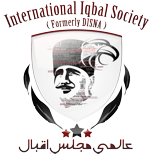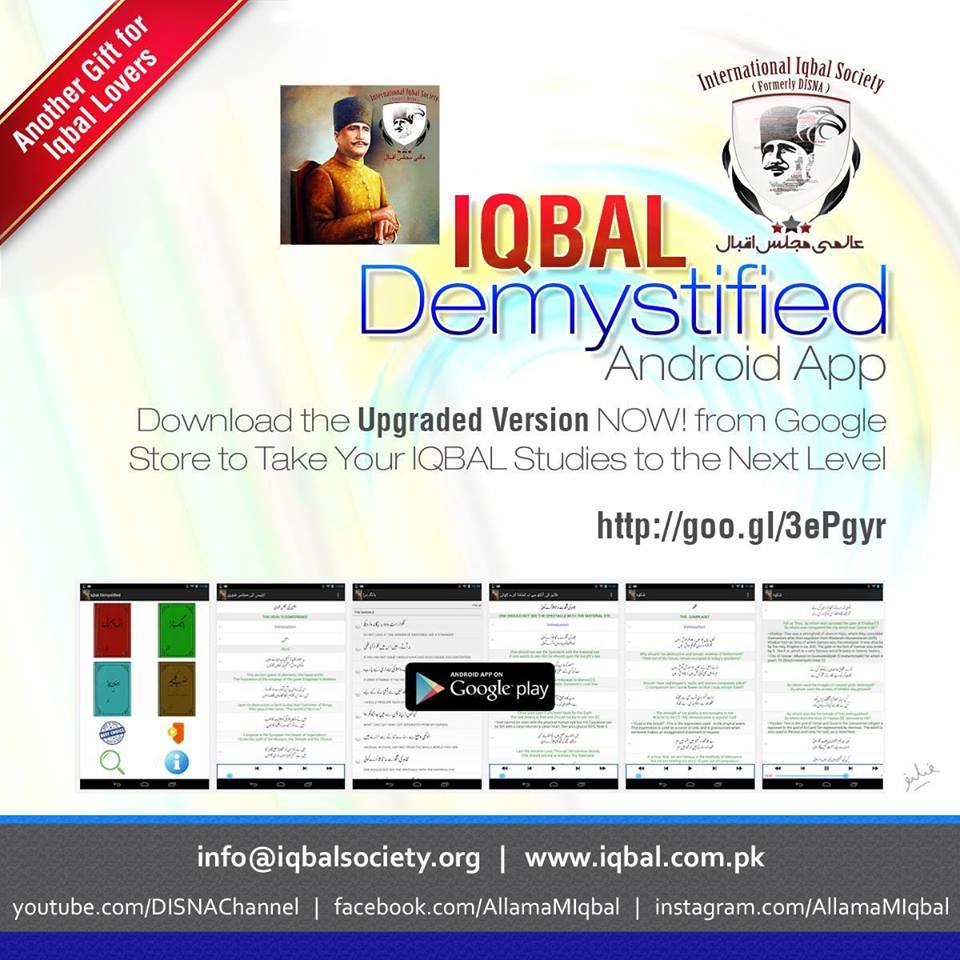Nature’s grace on Muslims
Nature’s grace on Muslims
By Agha Ghazanfar Hussain
Indian Muslims were living a life of deep slumber and doldrums. They were struck between the two extremes: The gloom and doom of slavery and absence of light for visionary thought and action. Suddenly, nature graced the Indian Muslims in the form of Allama Muhammad Iqbal who possessed full scale potential to unravel the sub continental socio-political and communal problems. Well, he identified a novel way to speak to the Indians despite knowing a fact that it was difficult to make his fellow countrymen think about the need of the hour in an intellectual manner. To understand the sublimity of Allama Iqbal, it is mandatory for us to make anti-clockwise perusal of the history of the sub-continent. Iqbal may be credited as a trendsetter poet who introduced the idea of change amongst Indian Muslim in their demeanor political dogmas and even he thrashed their undue doggedness to the religious clerics of the time. It was probably, Iqbal’s cross continental observation while tasking in the corridors of the Lincoln’s Inn Cambridge University of his visit to Germany for PhD programme which drove him fast to raise voice for his community. In the days of the British Junta, the politicians had to operate within the limited framework conferred to them. This could be one of the foremost reason why Iqbal chose to write revolutionary poetry. The spectrum of political activities in 1920s and 1930s was understandably narrow. So Iqbal availed the platform of Anjuman-e-Himayat-i-Islam to launch his message in the form of “Nazam recitation”. His Nazams, such as Shikwa and Jawab-e-Shikwa were well received by the audience.
It is noticed that he was quite ahead of his time. In the beginning, Iqbal’s poetic tone was more scholastic and metaphoric. It contained the beats of jobbling jurist who even interrogated the face-value of democracy as a political system for India and its dwellers, Indians. Probably Iqbal had realized that the revival of Islam was a must for the Indian Muslim. He reaised many questions to the reader in his poetry. He prompts Muslims by drawing references from history about their achievements and undiminishable footprints on the soils of varied regions in the world. The Holy Quran and the code of the Holy Prophet (PBUH) are the two facets of his faith. He strove to seek sobriety in thought and expression while addressing to the stock (Muslims) who had already lost flair for struggle except a few who were deeply inspired by western culture Iqbal’s poems do not create freedom guerrillas rather he aspires to prepare a new nation.
He highlights the value of the fundamentals of life, such as freedom, presentation of Islamic culture and brotherhood, self-respect for all, self-awareness and independence. He gives authority to his views from history by incorporating several protagonists, such as, the chivalry of Hazrat Ali (RA), the generosity of Hazrat Usman (RA) and the truthfulness of Hazrat Salman (RA). The foremost appeal in Iqbal’s poetry lies in a fact that the presents “foil” characters throughout. He doesn’t portray a utopian world, which is even difficult to conceive for an ordinary reader. Iqbal doesn’t compose the turbulence, misery and exploitation of his fellow-religion followers rather he incites Muslims to unfold new avenues for regeneration of their morals and ideals. He imparts objectivity to his subjective analysis while disguising his personal disliking for such a stance, e.g., Iqbal dislikes Western culture.
Iqbal infuses spiritual enlightenment in the use of symbols, such as, Shaheen in his poems. The use of symbols in poetry was no doubt a classical tradition of Persian and Urdu poetry but it is most dexterously employed by Iqbal in Urdu Nazam. Well, in introducing Shaheen as a symbol and in many other Nazams and couplets, Iqbal projects the diversity of calibre among humans. The reference of the classical age through their protagonists, such as, emperors like Jamshed, Kay or Qaiser all help a reader to tune himself for high and refined role. He determines the role and responsibility of ‘man’ in general and Muslims in particular. For instance, Iqbal says: “The active life with all its up and downs is better than a stagnant one. Even a dove can become an eagle when it makes desperate efforts to get out of the trap.” Iqbal, here teacher the significance of struggle to awaken the Muslims who had almost accepted slavery as their fate.
He wanted to ignite the light of faith among them so that the dark overcast of depression and fatalistic attitude could be erased from the idiosyncratic habits of Muslims of India. Iqbal, as a philosopher poet, doesn’t employ the traditional concepts of love, pessimism, atrocities of a beloved or loneliness as an unending phase in the life of an emotional human being. He gives value to nationalism, faith, identity, ambition and other practical problems. That’s why a reader can’t read the poetry of Iqbal as pastime. He presented his philosophical thoughts in the form of verses. His audience extended both in number and following with his every fresh public appearance from the platform of the All India Muslim League. This proves a fact that he was the first poet since the mutiny 1857, who really touched the heart of the Indian Muslims. So Iqbal meets the definition of Wordworthian poet: “Poet is a man speaking for men and has the capability to create poetry that he can share with others”.
He is neither impressed by the grandeur of Alexander that Great nor seems inspired by the lofty worldly accomplishments of Caesar, and nor even Iqbal seems inclined towards modern day success. His firm faith in Almighty envisions him with new vistas of valour. It further enables Iqbal of question the role of theocracy in Islam. He while exposing the vanity of Mullah maintains that the so-called and self-assured Mullah harm the Muslim community with all possible severity and ferocity. Besides, Iqbal’s contribution in the realm of the Indian politics was more of a philosophical type. His participation in the ongoing political culture of his time was restricted up to the All India Muslim League (AIML).
The 1930, Allahabad session of AIML endorsed the concept of a nation state as Iqbal projected a new path to the Indian Muslims. He stressed on an empirical notion by asking for a separate country for the Muslims. It shows that Iqbal was a duty-bound thinker whose thinking skills and philosophical thought was at its apex while talking of Pakistan. He lit a new candle both for the Muslim politicians and the followers, not of his age but for all ages.
Source:
The Nation Monday, April 21, 2008






